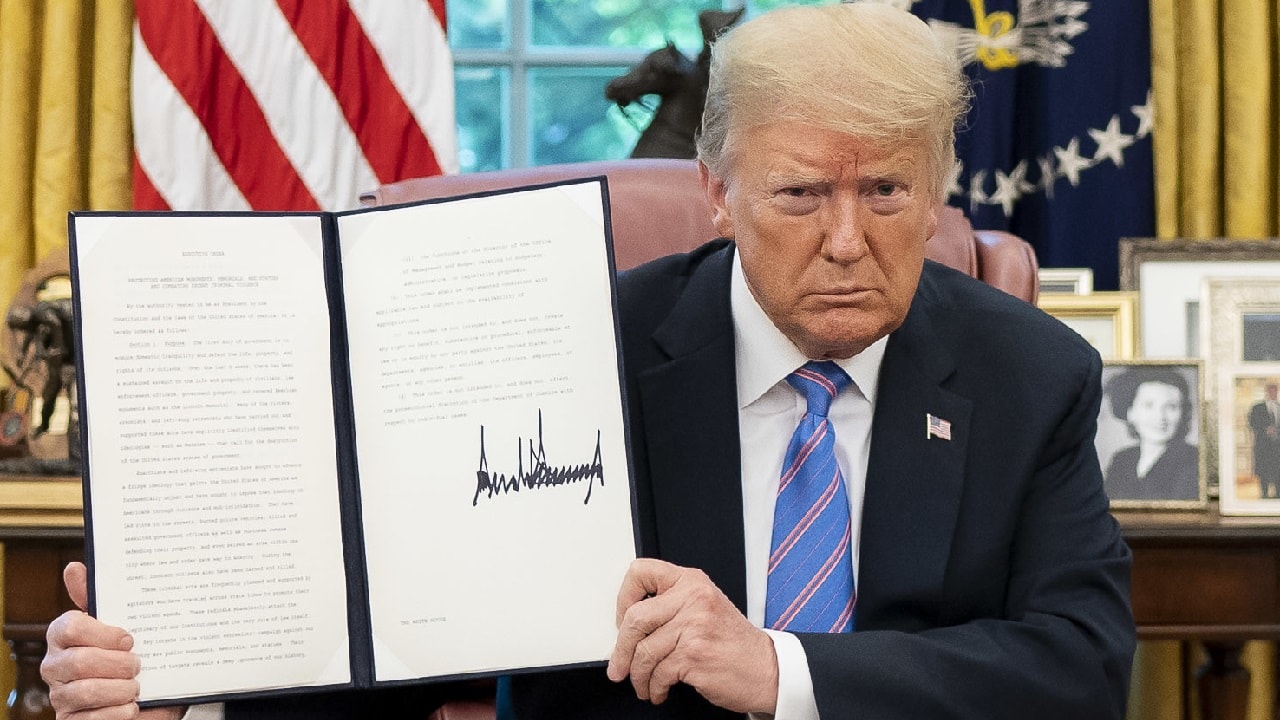Some say Donald Trump Has a Lot In Common with Dictators and Despots: Is That True? The first trailers of Ridley Scott’s upcoming biopic “Napoleon” were released last month – and while the finished product still needs to be seen, it is expected that the reportedly three-hour-long film will chronicle the rise of French military officer turned emperor. Though Scott, who is 85, won’t likely ever make a film about former President Donald Trump and his attempts to overturn the results of the 2020 election to remain in office, it is likely that we can expect such films to head to a theater sooner than later.
Epic Tale in the Making
The story could be just as epic as the upcoming “Napoleon” and possibly as grandiose as other biopics about infamous rulers who went to extreme lengths to cling to power. The parallels between Donald Trump and history’s despots and dictators have come increasingly into focus following the former president’s latest indictment.
“All authoritarian leaders have cults of personality,” Ruth Ben-Ghiat, professor of history at New York University and author of Strongmen: Mussolini to the Present, told NPR on Monday. “Meaning, they propose themselves as all-powerful, as the only solution possible to the nation’s ills. ‘I alone can fix it.'”
She further explained how Trump’s followers can look past the evidence that there was no stolen election and believes that he is the victim of a carefully choreographed effort to commit voter fraud. Part of this effort included demonizing the press – even those news outlets that were once seen as allies – and replacing it with a pro-Trump media network, including a social media platform he controls.
“If you’re looking to see if somebody’s going to be a strongman, what you find is even when they start campaigning, they immediately start trying to turn the public against the press, saying [the press is] biased and that they are the truth teller against the establishment,” added Ben-Ghiat.
Donald Trump Admired Dictators
There is the saying, “Absolute power corrupts absolutely,” but as a billionaire, Donald Trump was someone who came into office wielding enormous power. In fact, it could be argued that the presidency had less power than he was used to having, and that helps explain why he praised such despots as China’s Xi Jinping, North Korea’s Kim Jong Un, Russia’s Vladimir Putin, and even Turkey’s Recep Tayyip Erdogan.
Those men don’t often hear the word “no,” and why Trump would like the power of a dictator. At the same time, Trump often engaged in petty feuds with the leaders of friendly nations, including Canadian Prime Minister Justin Trudeau, whom he called a “far left lunatic,” while he accused French President Emmanuel Macron of being “very insulting.” He even reportedly called then-British Prime Minister Theresa May “a fool” and then-German Chancellor Angela Merkel “stupid” in calls with each of them – and it should be noted, unlike those he praised, these were leaders elected by their respective people.
American Royalty
While Teddy Roosevelt, John F. Kennedy, Ronald Reagan, Bill Clinton, and Barack Obama enjoyed a level of popularity that made them rise above others who held the office, not every president has attained such a level of celebrity; yet, we must remember too that Trump was actually a celebrity with a hit TV series.
That helped him win the White House, but it also convinced him that he was truly special.
Trump’s supporters have also served to bolster his fragile ego, but he is hardly the first American president to be the subject of such adulation. Obama became a pop culture icon – to the point that he was accused at times of acting like a monarch – while he attained adulation from the masses. Before the MAGA flags, there were the flags that replaced the stars on the Old Glory with the portrait of Obama.
Finally, it could be argued that Trump was also the result of Obama’s populism. Obama offered “hope and change” to a segment of the nation that felt left behind, but it in turn knocked another group down. Trump’s MAGA message simply appealed to that group. The election of Trump reportedly shocked Obama as it meant his work wasn’t appreciated, while his legacy was not secure.
In fact, it could have been easy to see how Obama could have become a dictator just as easily as Donald Trump – and perhaps that is what it takes to even consider ever wanting to be president. You need to be chosen, believing only you can fix the problems, and then can’t accept that not everyone will love you and thank you for the job you did.
In Trump’s case, he took it much further and couldn’t accept his 2020 defeat. Such a thing wouldn’t have happened to Kim, Putin, or Xi – and even Erdogan managed to hang on in his most recent election. Meanwhile, Trump is just a former president.
Author Experience and Expertise
A Senior Editor for 19FortyFive, Peter Suciu is a Michigan-based writer. He has contributed to more than four dozen magazines, newspapers, and websites with over 3,200 published pieces over a twenty-year career in journalism. He regularly writes about military hardware, firearms history, cybersecurity, politics, and international affairs. Peter is also a Contributing Writer for Forbes and Clearance Jobs. You can follow him on Twitter: @PeterSuciu.

